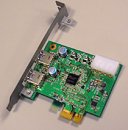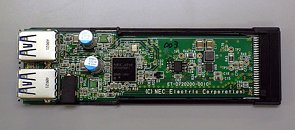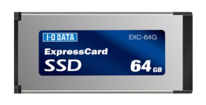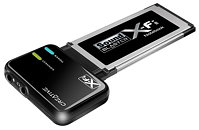
NEC Rolls-out First USB 3.0 Add-on Cards
NEC unveiled the first add-on cards based on its recently announced µPD720200 USB 3.0 host controller. This is the typical route taken by a company to propagate the standard in an environment where motherboard vendors and chipset makers haven't yet embraced it. For the desktop segment, the reference-design PCI-Express x1 add-on card provides two SuperSpeed USB 3.0 ports that are backwards-compatible with USB 2.0, 1.1, and 1.0. NEC also released an add-on card for notebooks, in the ExpressCard-34 form-factor based on the same controller, offering the same two ports. With these reference designs, NEC plans to propagate add-on card vendors to design their own cards based on the NEC µPD720200 controller. Typically, these cards should be priced around the $15~20 mark. A successor to USB 2.0, USB 3.0 offers 10-times the bandwidth (4.8 Gbps), although it will take a while for devices to use all that bandwidth, let alone support the standard. Perhaps this is why the company seems to find PCI-Express x1 sufficient as its system interface.









